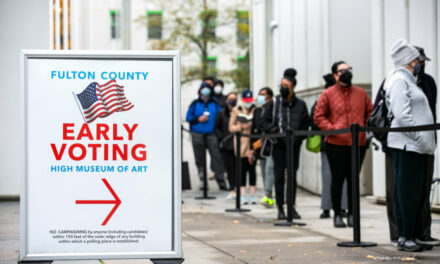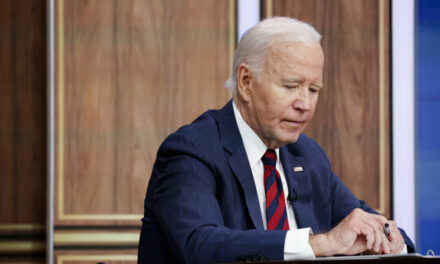We support our Publishers and Content Creators. You can view this story on their website by CLICKING HERE.
The Fourth Circuit ruled that federal court, not state, will interpret North Carolina’s voter registration dispute, as the case hinges on federal election laws.
A federal appeals court ruled on Oct. 29 that a Republican effort to challenge 225,000 North Carolina voter registrations will be heard in a federal court, rejecting the GOP’s request to have the case decided under state law.
The Republican National Committee (RNC) and the North Carolina Republican Party had initially filed their lawsuit in North Carolina state court in August. They argued that nearly a quarter of a million voter registrations are invalid because they were submitted on an old form that did not require applicants to provide a driver’s license number or the last four digits of a Social Security number.
Before December 2023, the application forms used by North Carolina did not inform the applicants of these requirements.
The GOP argued that the North Carolina State Board of Elections recognized the issue but refused to immediately act to identify and remove invalid registrations from the state’s voter rolls and that these incomplete registrations could allow 225,000 ineligible individuals to vote. The GOP sought to have those people removed as registered voters or for them to cast provisional ballots until their eligibility could be confirmed.
In its decision on Tuesday, the Fourth Circuit ruled that while the GOP’s case is framed under state law, it fundamentally requires interpreting federal laws, specifically the Help America Vote Act of 2002 (HAVA) and the National Voter Registration Act.
The North Carolina State Board of Elections, with support from the Democratic National Committee, had previously asserted that the GOP arguments hinge on federal election laws, including HAVA.
They argued on Oct. 25 that the GOP’s request for widespread deregistration or provisional voting directly involves interpreting federal provisions, which are “best suited for federal court interpretation.”
They further argued that the case’s core issues—rooted in federal law—carry national implications, particularly as the requested relief could affect the voting rights of thousands across North Carolina during an ongoing election. In a court filing, their lawyers wrote that “there is no reason to suppose that Congress” intended for state courts to handle such disputes.
The GOP, meanwhile, argued in court filings that the case is rooted in North Carolina law and that it rightfully belongs in state court to address issues related to the application of local election requirements.
The GOP argued that the requested relief is based on a state mandate to maintain accurate voter lists, and was not a federal matter.
Ruling on those arguments, a federal district judge initially sent part of the case back to the state court, but the Board of Elections appealed, and the Fourth Circuit Court of Appeals ultimately agreed on Tuesday that the case should be heard in federal court.
North Carolina’s early voting is underway and set to conclude on Nov. 2.

 Conservative
Conservative  Search
Search Trending
Trending Current News
Current News 






